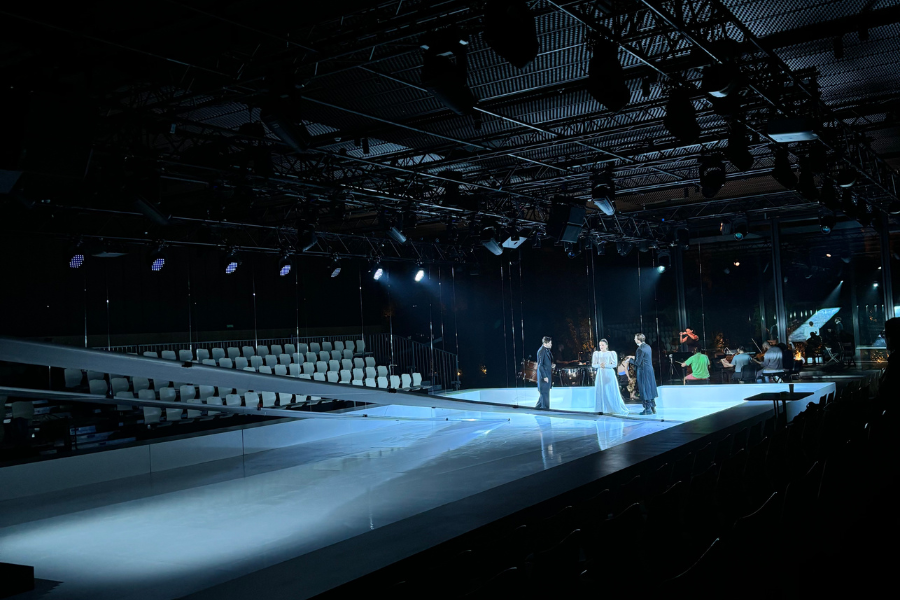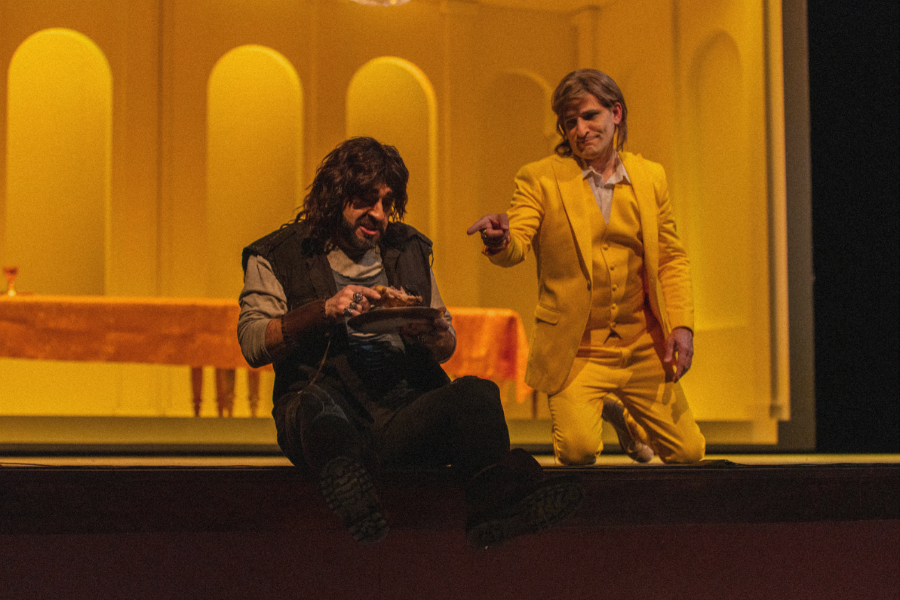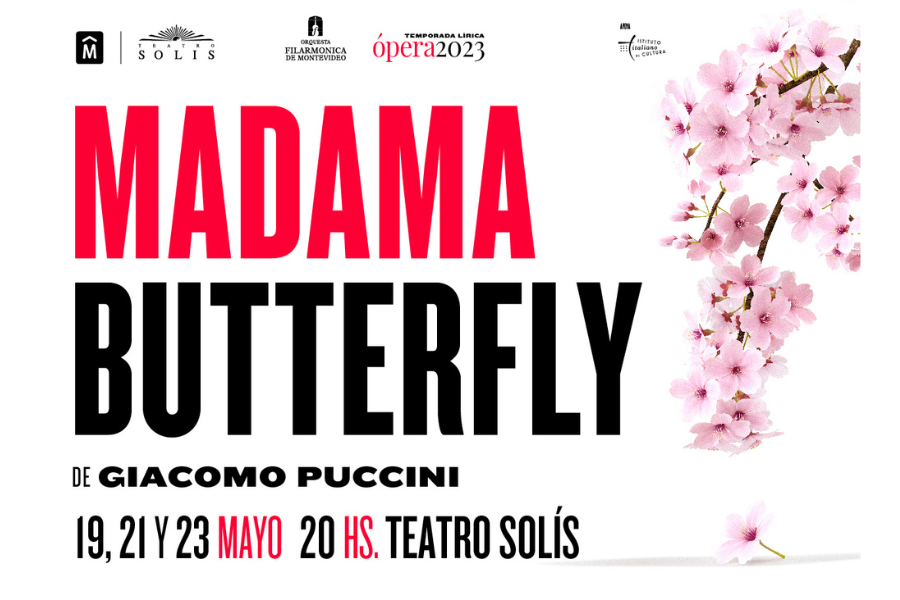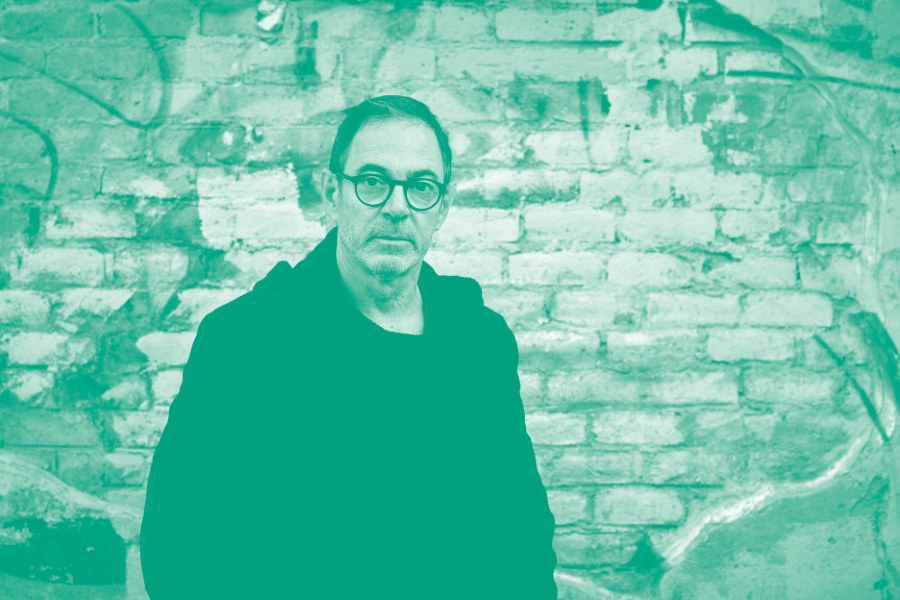Werther, Ópera de Colombia’s production premieres at Teatro Solís in Montevideo
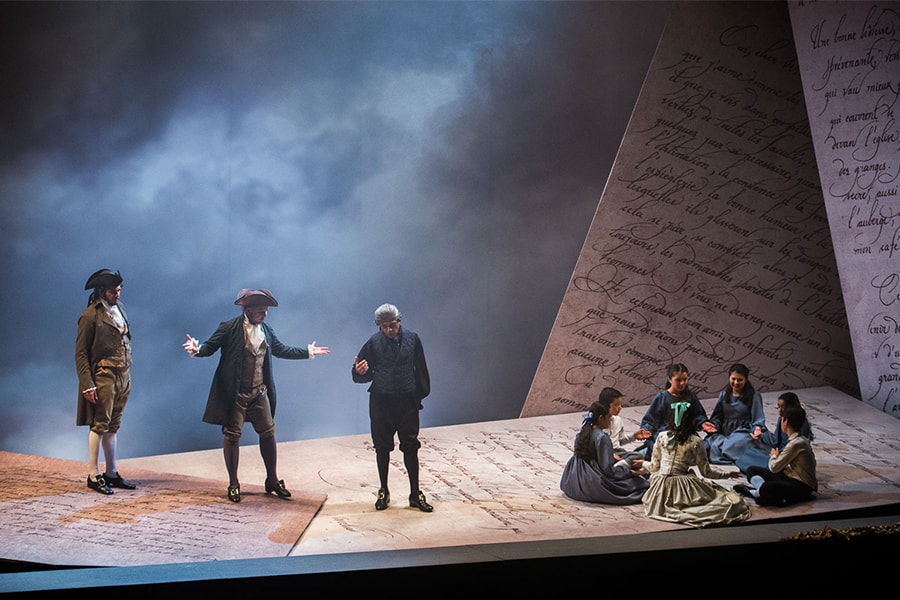
Werther by Jules Massenet, arrives at Teatro Solís. The Ópera de Colombias’ production with the stage direction of Alejandro Chacón, the Philharmonic Orchestra of Montevideo, under the musical direction of Martín Jorge and the performance of the tenor Jonathan Tetelman as “Werther” premiered on 13th September
The epistolary novel “The sufferings of the young Werther” by Goethe, published in 1774, would become a true manifesto of the nineteenth-century spirit: the main character embodied to perfection the tragic feeling of life. The French composer Jules Massenet was so fascinated by this character, that in 1892, he inspired one of his most famous works: Werther.
Prior to its premiere at Teatro Solís in Montevideo, we spoke with the Regisseur and Artistic Director of the Ópera de Colombia, Alejandro Chacón, about the challenge of representing the Massenet classic.
What was the starting point for his staging?
When we started working with Nicolás Boni in the production of Werther we relied, above all, on the fact that it is an epistolary novel, and the possibility of having the reference of fragments of the omnipresent novel, excited us. Especially those letters that somehow respected the librettists of the opera, and we use them in the moments in which they are mentioned in the opera.
Finally, the scenography ended up being a succession of letters that are stacked and make up the different environments. Especially the first two acts that take place in open spaces, for the third, the house of Charlotte, we chose a closed letter with the signature of Goethe as the wall of the room with a unique elements of props, a table where is the famous pistol of Albert, books, letters and a chair.
For the dramatic fourth act that begins with the shot with which Werther commits suicide, we use the text of Werther’s farewell letter to Charlotte, but wrinkled and bloodied.
When deciding in what language we would put it, we discarded the original German for being too cryptic, and the Spanish version for too obvious; we prefer the French version, which is what the librettists managed and that, anyway, a large part of the audience was going to understand.
We also kept the stations that are mentioned in the novel, first act on a quiet summer night, the second on an autumn morning and the last two on Christmas night.
This proposal allowed us to make the changes quickly, and achieve a single intermission at the end of the 2nd Act.
Also in agreement with Adam Martinez, the costume designer, we decided to keep the costume period in the year in which the action of the novel takes place.
The Uruguayan costume designer Adán Martínez Francia, died in Bogotá last April. The Opera de Colombia treasures the costumes that he designed and made with such affection during the last twenty years, and these days he has just released hir posthumous work: The Knight of the Rose by Richard Strauss, in a production that will be able to see the year next at Municipal of Santiago de Chile.
How would you define the aesthetics of your Werther?
This is an intimate opera, where the drama focuses mainly on the figure of Werther and from the third act in Charlotte, role that the librettists developed more, with respect to the novel written in first person. For the same reason we try to maintain that character, without distracting ourselves in adding other characters, which we consider unnecessary in our days.
What is for you the most powerful thing of Massenet’s work?
The emotion that manages to transmit to the public with his music, I do not know anyone who does not feel a knot when witnessing the anguish of that couple before an impossible love, and few will escape a few tears.
Why is Werther one of the most famous lyrical works and at the same time so difficult to represent?
For the vocal requirement for the tenor and the mezzo. Actually the tenor has three difficult arias, one of them “pourquoi me réveiller” very famous, and four duets with Charlotte, and the mezzo-soprano Massenet puts three arias in a row in the third act followed by the difficult duet with Werther and the whole final scene where as the tenor is dying she carries the most dramatic part.
ABOUT ALEJANDRO CHACÓN
 Argentine trained at the Teatro Colón in Buenos Aires. Established in Venezuela since 1982, he made his debut at the Teresa Carreño Theater in Caracas, with the stage direction of the operas La Bohème, Norma, Madama Butterfly, Rigoletto and Il Barbiere di Siviglia.
Argentine trained at the Teatro Colón in Buenos Aires. Established in Venezuela since 1982, he made his debut at the Teresa Carreño Theater in Caracas, with the stage direction of the operas La Bohème, Norma, Madama Butterfly, Rigoletto and Il Barbiere di Siviglia.
Artistic Director for the Ópera of Colombia since 1995, he has staged Il Barbiere di Siviglia in three versions, Madama Butterfly in two versions, Viva la Opera, La Vie Parisienne de Offenbach, La Fille du Régiment, A Night in Venice by Strauss son, Roméo et Juliette, Rigoletto, Lucia di Lammermoor, Les Contes d’Hoffmann, Don Giovanni, La Traviata in two versions, Don Pasquale, La Bohème, Le Nozze di Figaro, Don Carlo, Manon de Massenet, Tannhäuser with the Simón Bolívar Orchestra Venezuela directed by Gustavo Dudamel in his first Wagner, Turandot, Der Schauspieldirektor, Werther, La Cambiale di Matrimonio, Fidelio, Orphée et Euridice, Falstaff and just released Der Rosenkavalier.
He has worked at Municipal de Santiago de Chile, the Teatro Colón in Buenos Aires, the Municipal Theater of Sao Paulo, the Amazonas Opera Festival in Manaus; the Caramoor Festival in New York, Ópera de Medellín; the National Theater of Costa Rica, the Palace of Fine Arts of Mexico, the Sucre Theater of Quito; in Canada for l’Opéra de Québec; he is sworn in singing competitions in Lima and Trujillo in Peru; at the Solís Theater in Montevideo with Falstaff and returns this year with Werther; in Spain at the Teatre Principal de Mahón and the Villamarta de Jerez.
Founder of the opera workshop of the Central University since 2007 with whom he created several operas, many of them premiered for Colombia, such as Il signor fagotto, I due Figaro and Orphée aux enfers for celebrate the 10 years of the Workshop where the new values of the lyric have come from.
ABOUT WERTHER
The opera begins in the middle of summer, when the widower Le Bailli starts teaching his youngest children a Christmas song for next winter. Charlotte, the eldest daughter of Le Bailli, prepares to attend a local dance. As her fiancé Albert is away on a business trip, it will be the melancholy and young poet Werther who will escort her to the dance. When they returned from the dance late at night, Werther is already in love with Charlotte and declares his love. She, who is also attracted to Werther, remembers that she promised her dying mother to marry Albert.
Three months later, Charlotte and Albert are already married. Werther, melancholy and passionate tries to talk to Charlotte. She begs him not to try to see her again until Christmas. Werther weighs the idea of suicide, while Albert realizes that Werther loves Charlotte.
When Christmas Eve arrives Charlotte is at home rereading the letters Werther sent her, wondering how the young poet will be and how she had the strength to push him away. Suddenly, Werther appears and while he reads his poetry, he realizes that she corresponds to his love. They embrace a moment, but she soon dismisses him. He leaves with thoughts of suicide.
Albert returns home and finds his wife restless. Tell Charlotte that Werther has sent him a message asking for his pistols and explaining that he is going on a long trip. Charlotte feels a terrible premonition and runs off in search of Werther. When he arrives at his house, he has already shot himself and is dying. She comforts him by declaring his love. He asks for forgiveness and then, dies.


